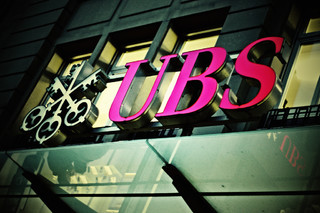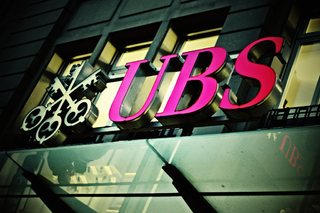
twicepix via flickr
The Swiss National Bank (SNB) charges a fee of 0.75% of large deposits in the central bank, which is the cornerstone of its monetary policy since January 2015. Its goal is to weaken the Swiss currency.
This is a burden for banks, especially at a time when wealthy customers still hold more than a fifth of their savings in cash, despite fast-growing financial markets, as shown by data on incomes of private banks in the country.
Number of wealthy customers who prefer to store cash has largely declined from the record highs seen during the financial crisis, but this figure is declining extremely slowly.
UBS, the largest private bank in the world, said last week that cash in its flagship capital management division declined in the second quarter to 21% of its invested assets from 21.5%.
UBS Wealth Management has 1.04 trillion francs in invested assets.
Credit Suisse, the fourth largest private bank in the world by assets, said that cash savings in all units for three months to the end of June were kept at 30%.
Cash savings in Julius Baer, the third largest private bank in Switzerland, declined to 22% from 23%.
According to the financial director Julius Baer, Dieter Enkelmann, the cash level was 34% immediately after the crisis in 2008, and before the crisis - 16%. So the level may decline if the markets continue to do well, Enkelmann said.
At the same time, profit of the National Bank of Switzerland (Banque nationale Suisse) for the six months of 2017 amounted to 1.2 billion Swiss francs ($ 1.2 billion) vs. 21.3 billion Swiss francs ($ 22 billion) a year earlier. This is reported on the website of the Swiss financial regulator.
"The results of BNS depend mainly on changes in the gold, currency, and capital markets. That is why strong fluctuations are part of the rule, and it is extremely difficult to draw any conclusions based on current indicators," the Swiss Central Bank said.
Losses due to changes in exchange rates for the period amounted to 11.8 billion Swiss francs ($ 12.2 billion).
The assets of the bank for the period increased by 4%, to 774.9 billion Swiss francs ($ 799 billion), of which gold reserves - by 4%, to 724 billion Swiss francs ($ 747 billion).
source: reuters.com
This is a burden for banks, especially at a time when wealthy customers still hold more than a fifth of their savings in cash, despite fast-growing financial markets, as shown by data on incomes of private banks in the country.
Number of wealthy customers who prefer to store cash has largely declined from the record highs seen during the financial crisis, but this figure is declining extremely slowly.
UBS, the largest private bank in the world, said last week that cash in its flagship capital management division declined in the second quarter to 21% of its invested assets from 21.5%.
UBS Wealth Management has 1.04 trillion francs in invested assets.
Credit Suisse, the fourth largest private bank in the world by assets, said that cash savings in all units for three months to the end of June were kept at 30%.
Cash savings in Julius Baer, the third largest private bank in Switzerland, declined to 22% from 23%.
According to the financial director Julius Baer, Dieter Enkelmann, the cash level was 34% immediately after the crisis in 2008, and before the crisis - 16%. So the level may decline if the markets continue to do well, Enkelmann said.
At the same time, profit of the National Bank of Switzerland (Banque nationale Suisse) for the six months of 2017 amounted to 1.2 billion Swiss francs ($ 1.2 billion) vs. 21.3 billion Swiss francs ($ 22 billion) a year earlier. This is reported on the website of the Swiss financial regulator.
"The results of BNS depend mainly on changes in the gold, currency, and capital markets. That is why strong fluctuations are part of the rule, and it is extremely difficult to draw any conclusions based on current indicators," the Swiss Central Bank said.
Losses due to changes in exchange rates for the period amounted to 11.8 billion Swiss francs ($ 12.2 billion).
The assets of the bank for the period increased by 4%, to 774.9 billion Swiss francs ($ 799 billion), of which gold reserves - by 4%, to 724 billion Swiss francs ($ 747 billion).
source: reuters.com





